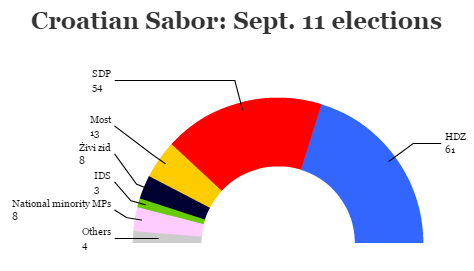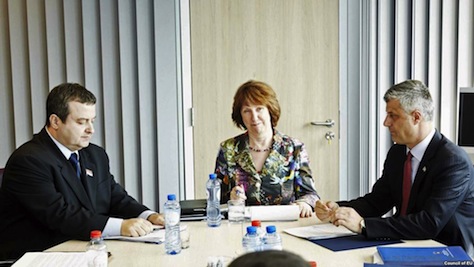
You won’t find it on any election calendar, but the census that ended today in Bosnia and Herzegovina amounts to the most important election in the country’s history since emerging from the brutal war that resulted from the breakup of Yugoslavia in the early 1990s.


The current governing structure of Bosnia and Herzegovina is a mess — the country remains divided largely on the lines of the Dayton Agreement from 1995, and a tripartite government more or less guarantees power to each of the country’s three main ethnic groups — Bosniaks, Serbs and Croats — even while the country itself remains divided between the Federation of Bosnia-Herzegovina (51% of the country) and the Serb-dominated Republika Srpska (49% of the country).
That governance framework effectively ended the gruesome fighting and ethnic cleansing that upended not only Bosnia and Herzegovina, but the entire former Yugoslavia two decades ago. But it’s a governing structure that has inhibited the country’s political and economic development to the point that the Dayton-era mechanisms have been denounced by the European Court of Human Rights and EU leaders are demanding fundamental constitutional changes in order to begin talking seriously about the accession of Bosnia and Herzegovina to the European Union.
Into this volatile mix comes this month’s census, which began on October 1 and will officially conclude today. The census attempts, for the first time in over two decades, to provide an accurate count of the country’s various ethnic groups — not just its Bosniaks, Serbs and Croats, but the country’s other minorities as well, including the country’s Jewish, Roma, Albanian, Hungarian, Montenegrin, Ashkali, Slovenian, Slovakian and so on.
In the last census taken in 1991 (just before the Yugoslav breakup) the population of Bosnia and Herzegovina, then just part of the greater Yugoslav federation, broke down as follows:
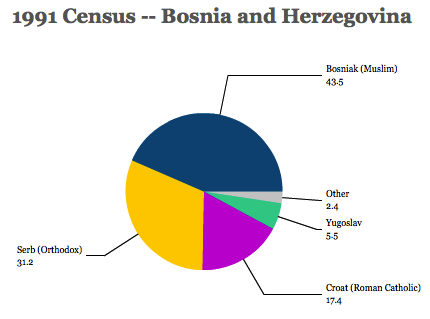
That represented nearly a complete reversal from 1948, when Serbs numbered around 44% and Muslims numbered around 30%.
The current census, which was originally scheduled to be conducted in 2012, asks each person to identify three attributes — their ethnicity, their language and their religion, each of are highly correlated in Bosnia and Herzegovina.
Ethnicity in the country breaks down largely on religious lines — Bosniaks are predominantly Muslim, Serbs are predominantly Serbian Orthodox and Croats are predominantly Roman Catholic. A 2008 estimate by the Bosnian-Herzegovinian state statistics office found that 45% of the country is Muslim, 36% is Orthodox and 15% is Catholic, setting a baseline for what we might expect the 2013 census to establish more formally in terms of ethnicity. While all three ethnic groups essentially speak the same, mutually intelligible Serbo-Croatian language, there are standard ‘Bosnian,’ Croatian,’ ‘Serbian,’ and ‘Montenegrin’ varieties of the language.
That means that political leaders from within each of the country’s three dominant ethnic groups are pushing hard to maximize turnout, lest one group’s numbers fall behind with constitutional reform likely to come in the years ahead — ethnic leaders want to enter constitutional negotiations from as strong a standpoint as possible vis-à-vis the other ethnic groups. Even Croatia’s government has taken an aggressive interest in the survey by urging Bosnian Croats abroad to vote.
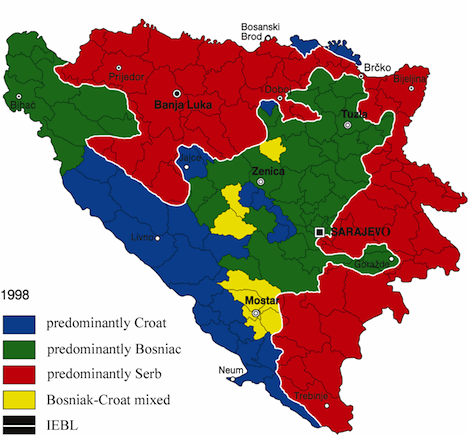
Furthermore, the choice for Bosnian Muslims is even more difficult, who are weighing what it means to be ‘Bosniak’ versus simply ‘Bosnian’ or even ‘Muslim’:
The new census will be the first time the country’s Muslims will have the opportunity to identify themselves as “Bosniaks,” an ethnicity that some Serbs say does not really exist. “For the first time, Bosniaks will be able to declare themselves as Bosniaks speaking the Bosnian language,” says Sejfudin Tokic, the coordinator of a project called It Is Important To Be Bosniak. “This is a historic census — from the Austro-Hungarian period when they were forced to declare themselves as Muhammadans or during the Kingdom of Yugoslavia when a Bosniak identity was not acknowledged, or during Communist Yugoslavia when Bosniaks were forced to declare themselves as Serbs or Croats practicing Islam. In this regard, this is a historic census.”
Between 1974 and 1993, Bosniaks in Yugoslavia were permitted to identify their ethnicity as “Muslim.” After the war broke out, they adopted the term “Bosniaks,” a historic name dating back to Ottoman times. But many Bosniaks are themselves wary of the Bosniak tag, which they see as overly politicized. Some have said they will answer “Muslim” or “Bosnian” when asked about their ethnic identity, a prospect that has alarmed Bosniak political parties.
Bosnia and Herzegovina featured the highest percentage of people who claimed ‘Yugoslav’ as their ethnicity in the 1991 census, which means that a large percentage of the country’s population could simply describe themselves as ‘Bosnian’ this time around. That could be especially true among the younger generation that wants to put the memory of the Bosnian war firmly in the past, even as bullet holes still scar the urban landscape and land mines still dot the rural, mountainous countryside.
By way of background, Bosnia and Herzegovina is just one of several new countries to emerge from the former Yugoslav union at the end of the Cold War: Continue reading Bosnia-Herzegovina census highlights tripartite fractures, constitutional problems →
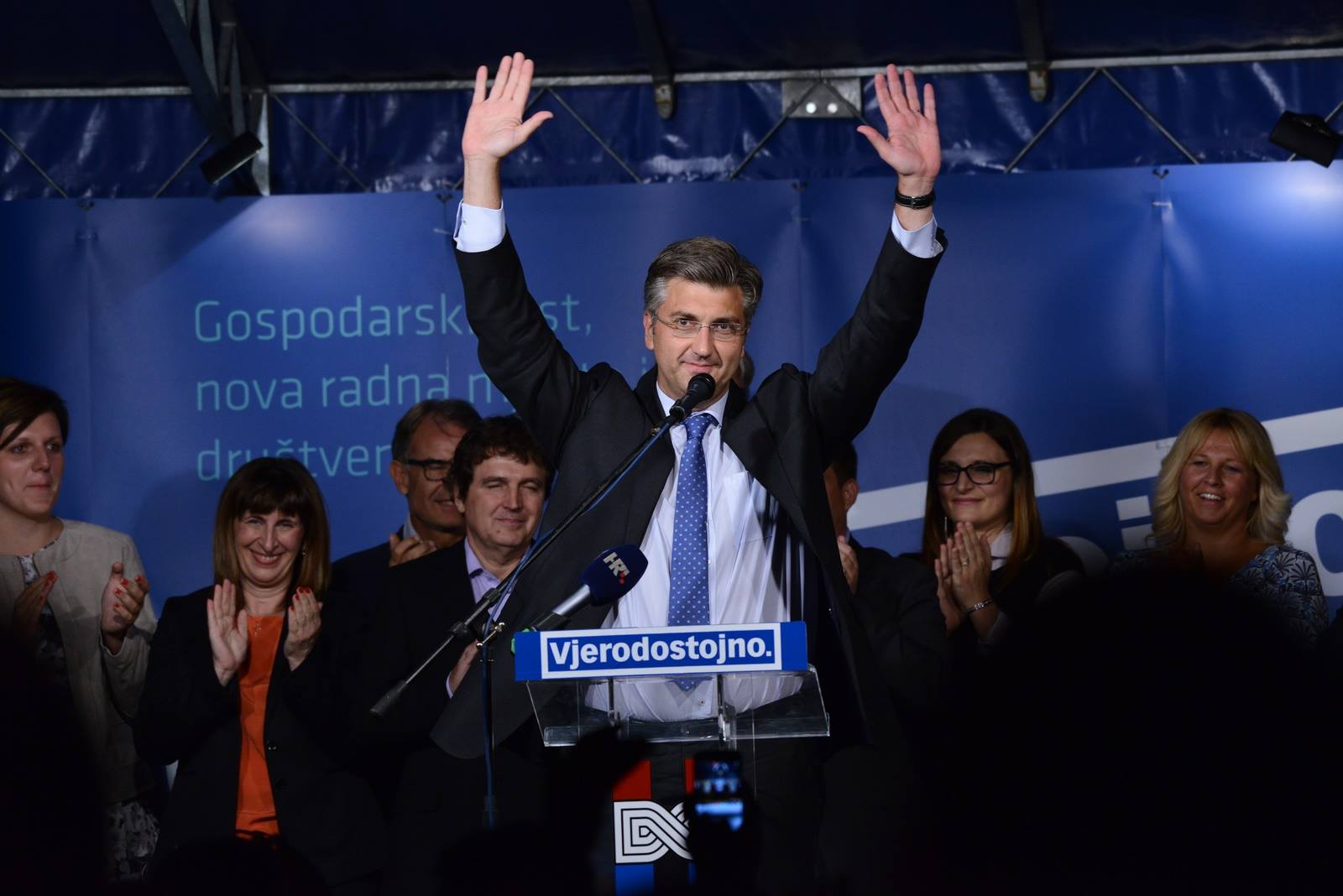
![]()
